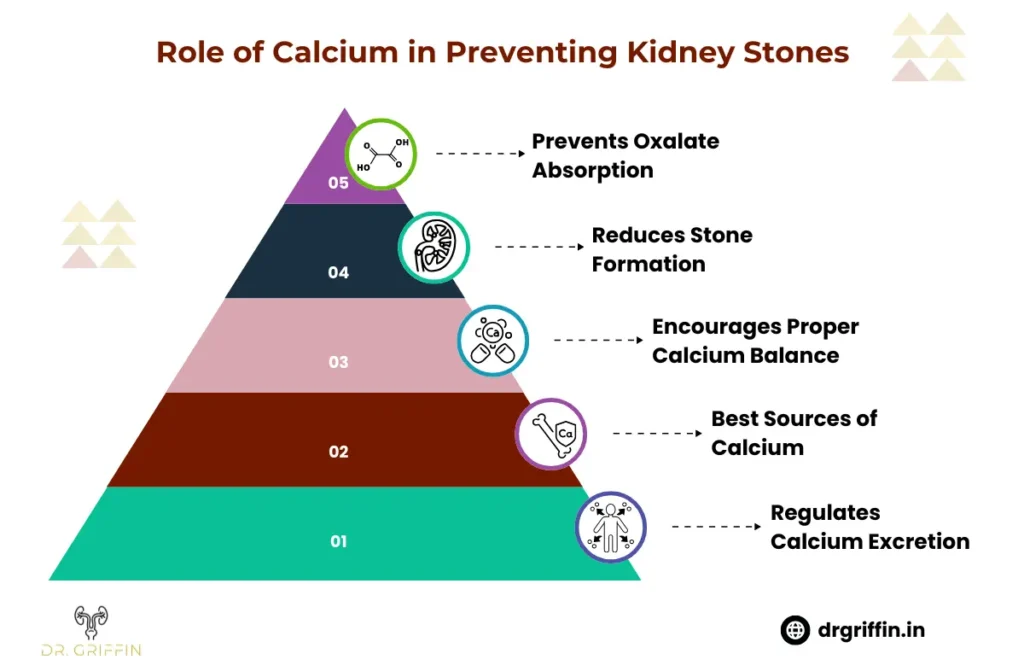Kidney stones can be painful and harmful to your health. In this blog, we will focus on how to reduce the risk of kidney stones through simple dietary and lifestyle changes. By following a healthy diet and staying hydrated, you can lower the chances of developing these stones. We’ll explore easy-to-follow tips on how to reduce the risk of kidney stones, including foods to eat, fluids to drink, and habits to avoid.
What is a Kidney Stone?
Kidney stones are hard, crystal-like substances that form in the kidneys. They develop when there is an imbalance in the substances that make up urine, such as calcium, oxalate, and uric acid. These stones can cause extreme pain, especially when they pass through the urinary tract. While kidney stones can vary in size, larger ones can cause significant blockages. How to lower risk of kidney stones, it’s essential to understand their causes and take preventive measures.

Reduce the Risk of Kidney Stones
There are many ways to reduce the risk of kidney stones, from drinking plenty of fluids to making simple changes to your diet. How to reduce kidney stone risk includes staying hydrated, eating calcium-rich foods, and limiting your intake of sodium, oxalates, and animal proteins. Implementing these changes can help keep your kidneys healthy and reduce the chances of stones forming.
Stay Hydrated
Drinking enough water is one of the best ways to reduce the risk of kidney stones. When your urine is diluted, it’s less likely to form stones. Aim for at least 8 glasses of water a day. Hydration helps flush out substances that could lead to stones. By staying hydrated, you can also reduce the pain associated with breaking up kidney stones if they do form.
Eat More Calcium-Rich Foods
Eating enough calcium can actually help reduce the risk of kidney stones. Foods like milk, yogurt, and leafy greens provide calcium, which binds to oxalates in the digestive system. This helps prevent oxalates from being absorbed into the bloodstream and forming stones. However, it’s important to get the right balance of calcium too much calcium can be harmful.
Eat Less Sodium
High sodium intake can increase the amount of calcium in urine, raising the risk of kidney stones. To reduce the risk of kidney stones, limit your consumption of salty foods such as processed meats, canned soups, and fast food. A diet low in sodium helps maintain healthy kidney function and prevents stone formation.
Eat Fewer Oxalate-Rich Foods
Oxalates are naturally occurring compounds found in many foods, like spinach, beets, and nuts. For those who are prone to kidney stones, consuming too many oxalate-rich foods can lead to stone formation. Reducing your intake of these foods is an effective way to reduce the risk of kidney stones and prevent complications.
Eat Less Animal Protein
Animal proteins like meat, poultry, and fish can increase the risk of kidney stones by raising the level of uric acid in the urine. Reducing animal protein in your diet can help decrease the chances of stones forming. Instead, focus on plant-based proteins like beans, lentils, and tofu to maintain a balanced diet.
Avoid Vitamin C Supplements
Taking high doses of vitamin C supplements may increase the risk of kidney stones. Vitamin C is metabolized into oxalates in the body, and consuming too much can lead to the formation of stones. To reduce the risk of kidney stones, consider limiting vitamin C supplements and getting your vitamin C from natural sources like fruits and vegetables.
Explore Herbal Remedies
Herbal remedies like chanca piedra, dandelion root, and basil have been used traditionally to support kidney health. Some studies suggest that these herbs may help reduce the risk of kidney stones. While more research is needed, these remedies may provide a natural way to reduce the risk of kidney stones. Always consult with a healthcare provider before trying new supplements.
Diet Recommendations for Kidney Stones
A diet to reduce the risk of kidney stones includes staying hydrated, eating a balanced diet rich in calcium and low in oxalates, sodium, and animal proteins. Focusing on plant-based foods and maintaining hydration are key strategies to reduce the risk of kidney stones. It’s also important to limit high doses of vitamin C and be mindful of your salt intake. By following these dietary recommendations, you can help keep your kidneys healthy and reduce the chances of developing stones.
Drink Plenty of Fluid: 2-3 Quarts/Day
Drinking adequate fluids is crucial for breaking up kidney stones and reducing the risk of new ones forming. Aim for 2 to 3 quarts of fluid daily. Water is the best choice, as it helps to dilute urine and flush out substances that could form stones. Staying hydrated keeps your urinary system healthy and reduces the chances of stone formation.
Limit Foods with High Oxalate Content
Oxalates are compounds found in many foods, such as spinach, sweet potatoes, and chocolate. When consumed in excess, oxalates can contribute to kidney stone formation. To reduce the risk of kidney stones, limit your intake of high-oxalate foods. Pairing oxalate-rich foods with calcium-rich ones can also help prevent stone formation by binding the oxalates in the digestive system.
Eat Enough Dietary Calcium
Dietary calcium can help bind to oxalates in the digestive system, preventing them from being absorbed and forming kidney stones. Include enough calcium-rich foods in your diet, such as low-fat dairy products, fortified plant-based milk, and leafy greens. This will help maintain a balance and reduce the risk of kidney stones, but avoid excessive calcium intake, which can have the opposite effect.
Eat a Moderate Amount of Protein
A diet high in animal protein can raise the level of uric acid and calcium in urine, both of which increase the risk of kidney stones. Eating a moderate amount of protein, particularly from plant-based sources, can help reduce the risk of kidney stones. Include foods like beans, lentils, and tofu in your diet to reduce risk of kidney stones and ensure you get enough protein without overloading your system.
Avoid High Salt Intake
Eating too much salt can raise the amount of calcium in your urine, which increases the likelihood of kidney stones forming. To reduce the risk of kidney stones, avoid high-sodium foods such as processed snacks, canned goods, and fast food. Reducing salt intake can help keep your kidneys healthy and prevent stone formation.
Avoid High Doses of Vitamin C Supplements
High doses of vitamin C supplements can increase the risk of kidney stones because vitamin C is converted into oxalates in the body. To reduce the risk of kidney stones, avoid taking large amounts of vitamin C and focus on getting your vitamin C from natural sources like citrus fruits, strawberries, and bell peppers.
Conclusion
In conclusion, reducing the risk of kidney stones is possible through simple lifestyle and dietary changes. By staying hydrated, eating a balanced diet rich in calcium, and limiting your intake of sodium, oxalates, and animal proteins, you can lower your chances of developing kidney stones. How to lower risk of kidney stones involves a combination of healthy habits, including avoiding excessive vitamin C supplements and incorporating herbal remedies. By following these guidelines, you can keep your kidneys healthy and reduce the risk of kidney stones.









